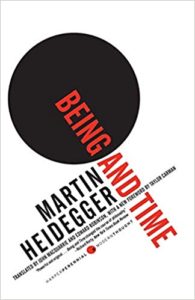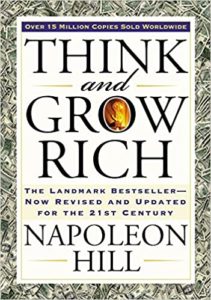The words “existence and time” remind you of “Being and Time” by Martin Heidegger, who has been called the greatest philosopher of the 20th century.
I will not go into depth this time, but I believe that Heidegger’s “Being and Time” is very much in line with Buddhist thought.
In the above book, Heidegger went on to clarify the significance of “questioning the meaning of existence,” and “existence” is, in Buddhist terminology, “dharma”.
In its original sense, “dharma” means “that which keeps,” and from there it has come to be used largely in the following two senses
- existence
- teaching
And, in fact, the “law of dependent origination”, “law of dependent arising” or simply “causality,” which is the theme of this issue, is truly the core of both the ontology and the teachings of Buddhism.
In short, we can say that the Law of dependent origination is the “Dharma” itself.
So, the question, “What is the law of dependent origination?” is almost the same as asking, “What is existence?
In Neo Buddhism, it is sometimes simplified and explained as “the law of dependent origination” = “the law of cause and effect”.
This time, however, I would like to discuss more deeply the “law of dependent origination (causation)” in Buddhist thought.
Divide “the law of dependent origination (causation)” into “existence and time”.
In conclusion, the law of dependent origination can be categorized in two ways, in terms of existence and in terms of time, as follows.
- Temporal Origination: the law of cause and effect
- Ontological Origination: Dependency-independence
*The term “causation” is used because the term “the law of dependent origination” would be too long.
Dependency-independence is a bit of a complicated term, but it means, in essence, that existence has the property of being interdependent.
Now, let us consider each of these.
1. Temporal Origination
“Temporal Origination” is the kind of causation I have been explaining in various articles. It is the law that everything has a cause and an effect.
This is the so-called law of cause and effect. This is also the simplified way of understanding the “law of causation” that I have been explaining.
The Sanskrit word for causation is pratītya-samutpāda.
In English, it seems to be translated as “dependent co-arising”.
Originally, causes were divided into direct and indirect causes.
For example, for a flower to bloom, the sequence would be as follows.
- Sow a seed [direct cause]
- Water, nutrients, and the sun [indirect causes]
- The flower blooms [arising]

In other words, “indirect causes” is the mediator between “direct cause” and “arising”. Sometimes, the “arising” is called “effect”.
In any case, things occur according to the chain of cause and effect in the flow of the time axis from past to present to future, and this is what we call “Temporal Origination”.
Furthermore, we can extend the idea that temporal causation is connected to “wisdom”.
Let’s divide time into past->present and present->future, respectively.
Past -> Present
We believe that there are [direct cause] and [indirect causes] in the past that create our current state (or that of others, society, or the nation).
So wisdom is gained by cramming such cause/effect links.
This is the principle of karma, which is also used in the Eightfold Path of Reflection and the Twelve Causal Links.
Present -> Future
This can also be used in the theory of self-realization, which says that sowing good “causes” in the present will produce good ” effects” in the future.
In fact, the biblical phrase, “You must reap what you sow,” has led to the emergence of the New Thought and Christian Science movements in the United States after Protestantism.
The fruition of such a movement has led to books such as Napoleon Hill’s “Think and Grow Rich” for example.
However, such self-realization theories also fit within the vast theoretical system of the Buddha Dharma.
Now, we can gain wisdom by observing the chain of cause and effect, whether past -> present or present -> future, right?
Hence, temporal origination leads to the idea of wisdom.
Francis Bacon said, “Knowledge is power.”
Wisdom is not only an essential element in self-establishment, it is also the base power in the practice of compassion, which I will discuss next.

2. Ontological Origination
Ontological Origination is interdependence, the idea that all beings are tentatively dependent on one another.
For example, you are able to exist now because of air (oxygen).
And that oxygen is also produced by the carbonic acid assimilation of plants.
Furthermore, the plants are carbonic acid assimilation by using water and the sun as their fringes, right?
In this way, all beings cannot exist by themselves, but are allowed to “exist” in mutual dependence and interdependence.
This state of interdependence is very similar to love. In Buddhist terms, it is compassion.
Hence, “ontological origination” leads to the idea of compassion.
The following is a summary of the issues discussed so far.
- Law of Dependent Origination in Time = Temporal Origination: Law of Cause and Effect → Attainment of Wisdom
- Law of Dependent Origination in Existence = Ontological Origination: Co-dependency → Practice of Compassion
Neo Buddhism believes that the attainment of wisdom and the practice of compassion are two of the most important principles of the universe, as well as the meaning and mission of our lives!
*Reference article:.Meaning and Mission of Life – What is the Most Winning Theory of Success?
Three Dharma Seals and the Law of Dependent Origination
And here, let us further summarize according to the three Dharma seals, as they are the banner of Buddhist teaching.
- Impermanence: All compounded things are characterized by impermanence
- Non-self: All existing things are characterized by the lack of a self
- Nirvana: Nirvana is characterized by uncompounded quiescence
Impermanence is a theory of time that all things change and transform.
And Non-self refers to the ontology that “all things cannot exist by themselves, but can exist temporarily by depending on each other.
So, in summary, the following is what we ended up learning this time.
- Impermanence: Temporal Origination → to the attainment of wisdom
- Non-self: Ontological Origination → to the practice of compassion
Furthermore, the last of the three Dharma seals is Nirvana.
This is related to why each of us is required to acquire wisdom and practice compassion in our own “existence”.
It may be easy to say in words that wisdom is acquired and compassion is practiced, but it takes a lot of effort to actually put it into practice in this world.
The reason why we are still in the process of reincarnation, living and dying over and over again, is that each of us is also fundamentally seeking to ” attain wisdom and practice compassion”.
In short, this is a “Theory of Happiness”in the truest sense of the word.

Isn’t it a great gospel that each of us, our “existence,” ultimately not only desires to be happy, but is also called upon to be happy by the two great principles of the universe?
However, when one lives in the phenomenal world, one tends to lose sight of the inner reality of that happiness.
Under the influence of the physical ego-consciousness, we tend to forget the “Impermanence and the Non-self” described above.
Therefore, we must live with a keen awareness of its important inner reality, true happiness.
In a short, the theory of happiness, which is based on “the attainment of wisdom and the practice of compassion,” is in fact “Nirvana”.
Rather than saying that there is nirvana after death (although this is part of the nirvana theory), the theory of nirvana is grounded in the “here and now,” where the vertical axis of wisdom and the horizontal axis of compassion intersect.
This is quite different from the general Buddhist interpretation of nirvana, but I still think that the traditional interpretation that nirvana is the liberation from reincarnation (Moksha) is too backward.
Rather, it should be a “nirvana” interpretation that reads into the significance of reincarnation and actively utilizes it.
And I believe that this interpretation of nirvana is an opportunity for Neo Buddhism to overcome so-called “Buddhism” in the narrow sense.
The above has been a philosophical discussion of the Law of Dependent Origination, divided into being and time.
It is said that Buddhism is a very philosophical religion, but rather than being philosophical, Buddhism is at the origin of all philosophy.









Comments